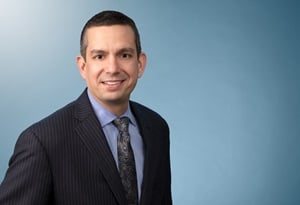Supreme Court Decides Christopher v. SmithKline Beecham Corp.
On June 18, 2012, the U.S. Supreme Court decided Christopher v. Smithkline Beecham Corp., No. 11-204, holding that pharmaceutical sales representatives, who promote sales of prescription drugs and obtain nonbinding commitments from doctors to prescribe those drugs but do not themselves sell the drugs to doctors or patients, are "outside salesmen" and therefore exempt employees under the Fair Labor Standards Act (FLSA), 29 U.S.C. § 213(a). The Christopher decision resolved a circuit split and overruled In re Novartis Wage & Hour Litigation, 611 F.3d 141 (2d. Cir. 2010), which held that pharmaceutical sales representatives are not exempt under the FLSA.
Because federal law requires that prescription drugs may be dispensed only pursuant to a physician's prescription, pharmaceutical companies focus their marketing efforts for such drugs on physicians. To this end, the companies employ pharmaceutical sales representatives such as the plaintiffs here to try to persuade physicians to write prescriptions for their products. The plaintiff sales representatives are well compensated and receive both a base salary and incentive pay, but they are not paid overtime wages when they work more than 40 hours per week. The plaintiffs brought suit against their employer, claiming that the company violated the FLSA by failing to compensate them for overtime. The company moved for summary judgment, arguing that the representatives were "outside salesmen" under the FLSA and therefore exempt from the overtime compensation requirement. The district court granted summary judgment for the company, and the Ninth Circuit affirmed.
The Supreme Court affirmed, holding that the plaintiffs qualify as "outside salesmen." The Court first addressed whether it should afford Auer v. Robbins deference to the Department of Labor's (DOL) position that an employee does not make a "sale" unless he actually transfers title to the property at issue. The Court declined to defer to the DOL's interpretation, citing both the DOL's recent change of position on the issue and the lack of persuasiveness of that position. Turning to the FSLA itself, the Court acknowledged that the statute did not provide clear guidance on the question before it, but applied rules of statutory construction to conclude that the statute exempts employees performing functions like the plaintiffs'. In particular, the Court concluded that, in the unique context of prescription drug marketing, the term "other disposition" as used in the definition of "sales" includes the nonbinding prescription commitments that plaintiffs obtained from physicians.
Justice Alito delivered the decision of the Court, in which Chief Justice Roberts and Justices Scalia, Kennedy, and Thomas joined. Justice Breyer filed a dissenting opinion, in which Justices Ginsberg, Sotomayor, and Kagan joined.
For earlier discussions of the Christopher case and other cases addressing the exempt status of pharmaceutical sales representatives, please see the the following articles:
- Seventh Circuit Holds Pharmaceutical Sales Representatives Are Exempt Under FLSA
- Pharmaceutical Industry Targeted Again in Case Alleging Misclassification of Sales Representatives
- Supreme Court to Consider Pharmaceutical Sales Representative FLSA Case
- Wage and Hour Collective Actions Extend to Medical Device Manufacturers
- Federal Courts Consider FLSA Exempt Status of Pharmaceutical Sales Representatives
The material contained in this communication is informational, general in nature and does not constitute legal advice. The material contained in this communication should not be relied upon or used without consulting a lawyer to consider your specific circumstances. This communication was published on the date specified and may not include any changes in the topics, laws, rules or regulations covered. Receipt of this communication does not establish an attorney-client relationship. In some jurisdictions, this communication may be considered attorney advertising.



